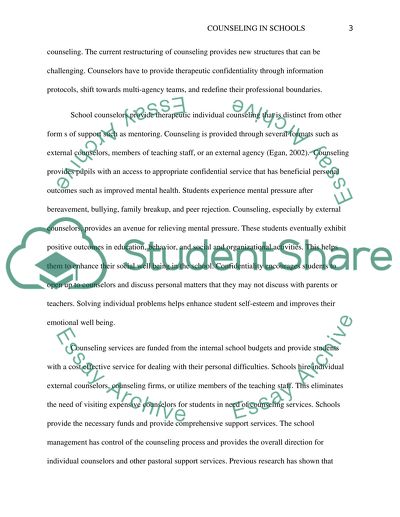Cite this document
(“Counseling in Schools Essay Example | Topics and Well Written Essays - 3750 words”, n.d.)
Counseling in Schools Essay Example | Topics and Well Written Essays - 3750 words. Retrieved from https://studentshare.org/education/1453713-how-important-do-think-counselling-is-in-schools
Counseling in Schools Essay Example | Topics and Well Written Essays - 3750 words. Retrieved from https://studentshare.org/education/1453713-how-important-do-think-counselling-is-in-schools
(Counseling in Schools Essay Example | Topics and Well Written Essays - 3750 Words)
Counseling in Schools Essay Example | Topics and Well Written Essays - 3750 Words. https://studentshare.org/education/1453713-how-important-do-think-counselling-is-in-schools.
Counseling in Schools Essay Example | Topics and Well Written Essays - 3750 Words. https://studentshare.org/education/1453713-how-important-do-think-counselling-is-in-schools.
“Counseling in Schools Essay Example | Topics and Well Written Essays - 3750 Words”, n.d. https://studentshare.org/education/1453713-how-important-do-think-counselling-is-in-schools.


